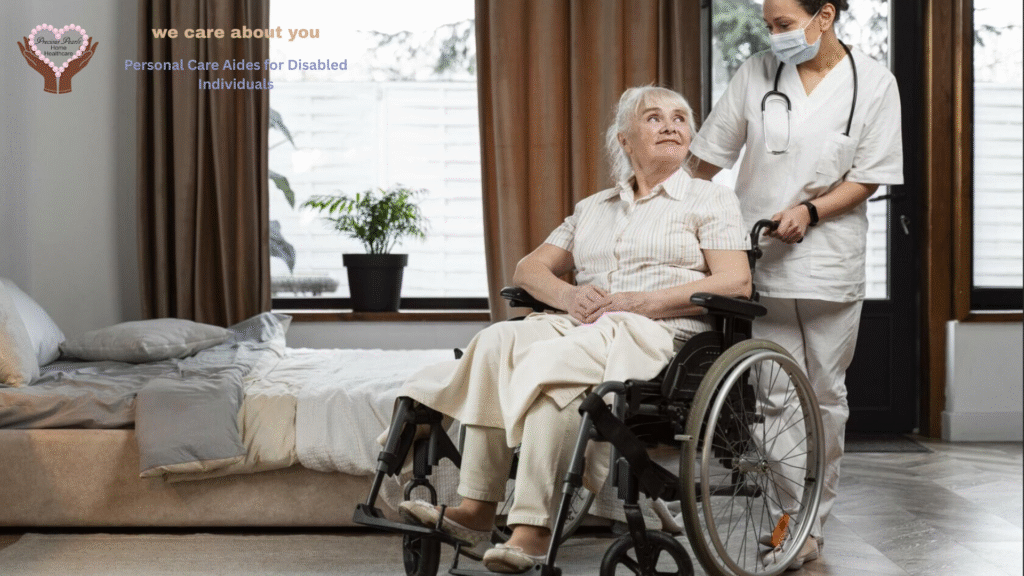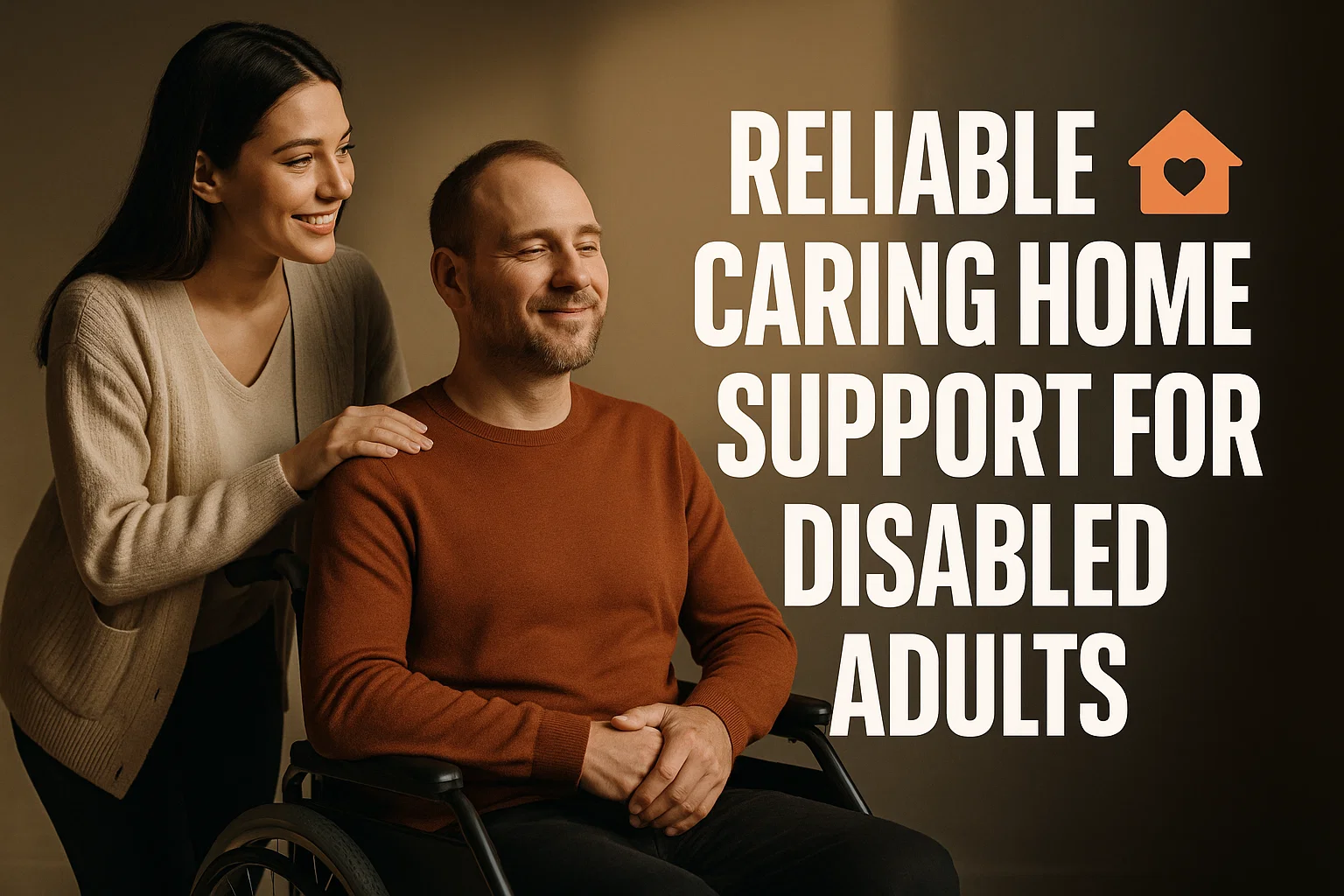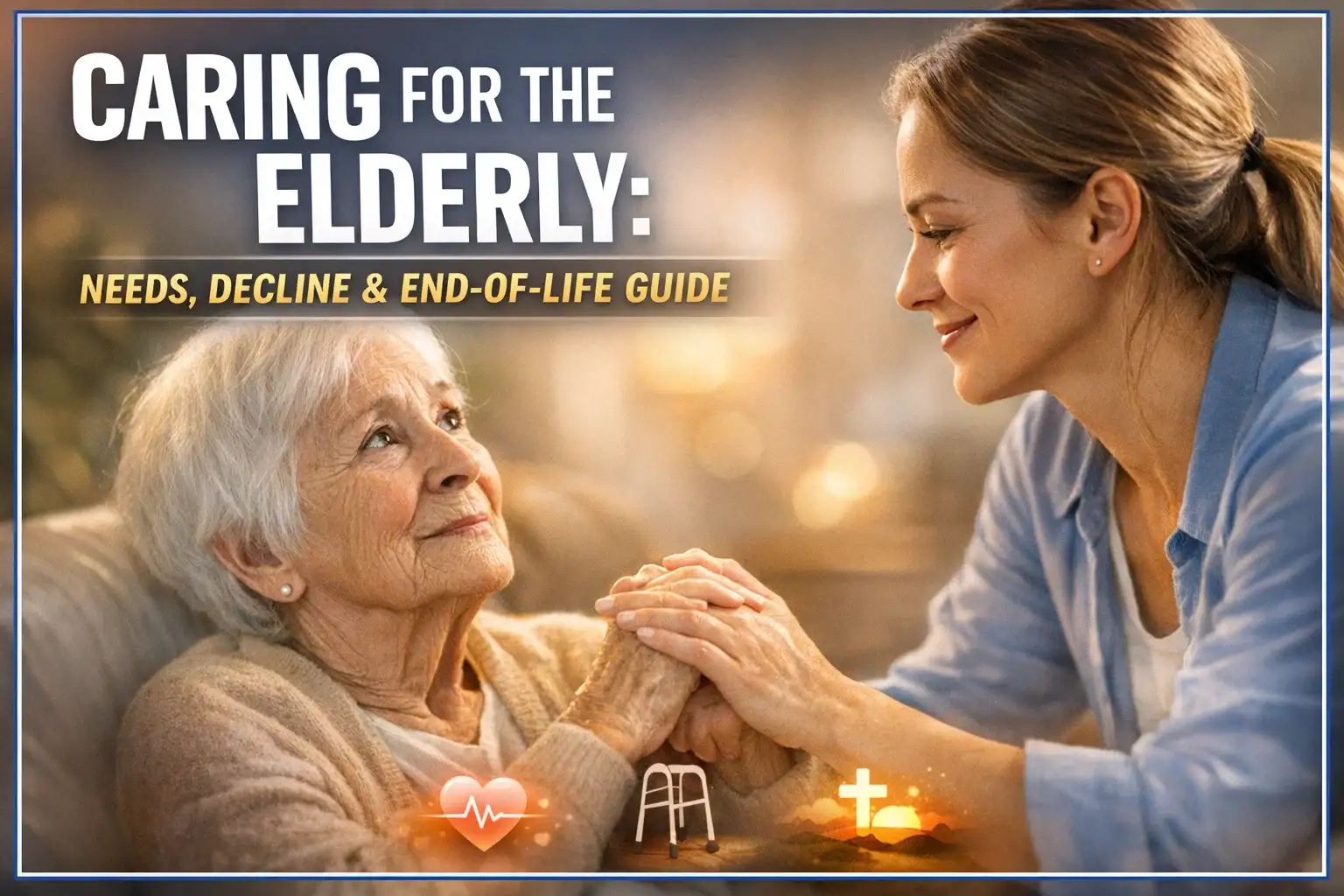A physical disability can present its own set of difficulties, particularly the ability to remain safe, independent, and comfortable at home. Access to trusted home support is the difference between many families. The disabled adults can have normal lives with their dignity and have independence with the right care.
Caring home assistance is more than aid. It incorporates individual care, assistance with everyday activities, mobility aids, and emotional support. It can be transportation, meal preparation, or personal care, but the aim is alike, to make an environment as safe and supportive as possible in which disabled adults can flourish.
Why Is Home Support for Disabled Adults Important?
Home support services are essential to disabled adults as they offer the balance between self-sufficiency and safety. In the absence of appropriate support, the day-to-day activities such as bathing, cooking, or moving around in the house can become daunting. Personal assistants can meet these needs through the assistance of professional caregivers who promote autonomy as much as feasible.
Peace of mind can also accompany home support to families. The fact that they will leave their loved one in the hands of the regular care decreases stress and gives them more time to become helpful instead of being devastated. These services enable the disabled to live comfortably at home rather than relocate to a facility.
What Does Caring Home Support Include?
Common home-based support can involve:
- Assistance in dressing and bathing, and grooming.
- Mobility and exercise assistance.
- Cooking and diet planning
- Getting to the appointment and carrying out errands.
- Light housekeeping and safety inspection.
- Companionship and emotional support.
These services cannot fit all. Every care plan is tailored to address the individual needs of each person so that you are treated with dignity, comfort, and independence throughout the process.
Caring Home Support for Disabled Adults
Their care at home needs patience, compassion, and adequate planning when disabled adults are involved. Homes commonly give home support as it has the right balance of freedom and security. It is time to dig deeper into the way these services can be used and why they are so useful.
Daily Living Assistance for Disabled Adults
Daily living assistance is one of the fundamental components of the home support of disabled adults. This covers assistance with activities of daily living (ADLs), including:
- Bathing and showering
- Getting in and out of clothing.
- Grooming and hygiene
- Using the bathroom safely
- Eating and taking medicine.
Caregivers are concerned with independence. As an example, when a person can brush his teeth but cannot stand up on his own, the caregiver supports the individual without becoming fully self-reliant.
Adaptive Equipment for Mobility Support
The issue of mobility is an issue among adults with disabilities. Mobility support to use adaptive equipment is a safer and easier way to live. Common tools include:
- Walkers, canes, wheelchairs.
- Stairlifts or ramps to move with ease.
- Bathroom and hallways grab bars.
- Adjustable bed and supportive chairs.
Caregivers do not just assist in the usage of these devices, but also make sure that they are installed properly. This lowers the chances of falling and eases everyday activities.
Caregiver Help for Physically Disabled Adults
Families usually need to use caregiver assistance in order to keep physically challenged adults at home on a regular routine. Professional caregivers can:
- Help with movement and transport.
- Give drug reminders.
- Physiotherapy.
- Provide support and friendship.
This enables the family members to relax and take time when they have the support of the caregiver, and they are assured that their loved one is in safe hands.
Home Modification Tips for Disability Support
There are instances where minor adjustments at home can lead to a significant effect on comfort and security. These are disability support home modification tips:
- Fit non-slip floors in the bathroom and kitchen.
- Install ramps rather than stairs at the doorways.
- Wider doorways are needed when a wheelchair is needed.
- Reduced the countertops to reach.
- Keep necessities at waist level in order to bend less.
Such changes not only avoid accidents but also ensure independence as the disabled adult can move freely in his or her home.
Personal Care Aides for Disabled Individuals

Home support of the disabled individuals is significantly contributed to by the professional personal care aides. They provide:
- Bathing, dressing, and grooming help.
- Minor cleaning of areas to make them safe.
- Food planning and cooking.
- Social emotional support.
With a personal care aide, the disabled adults are able to enjoy a sense of dignity and independence, even though assistance is provided on activities that may prove a challenge.
Independence Support for Disabled Adults at Home
One of the aims of caring home support is the encouragement of independence. At-home care of the disabled adults: Independence support involves:
- Promoting personal hygiene habits.
- Educating on the safe mobility aids.
- Providing counsel on how to handle everyday chores.
- Assisting patients to gain self-confidence in home mobility.
This assistance raises their self-esteem and makes the disabled adults feel that they are more in charge of their lives.
Transportation Options for Disabled Residents
Disabled adults may be challenged by getting around. This is why the home support is worthwhile regarding transportation options for disabled residents. Services may include:
- Travel to health care facilities.
- Easy travel to carry out errands and shopping.
- Mobility helps during travel.
- Help with going to social or family events.
This not only provides access to health but also helps alleviate isolation since disabled adults are kept active in their society.
Benefits of Caring Home Support
There are several significant advantages of home support for disabled adults:
- Better security with fall prevention and adaptive devices.
- Healthier lives due to regular habits and eating habits.
- Mental stability out from friendship and support.
- Less stress on the families and caregivers.
- More autonomy for disabled adults at home.
Tips for Families Supporting Disabled Adults
Families have a large part in making disabled adults feel safe and supported at home. Here are some practical tips:
- Communicate openly: Share thoughts about needs and preferences to establish a homely routine.
- Stay organized: Have one place for medication, schedules, and your care notes.
- Encourage independence: Let your loved one do what he or she can, even though it may require more time.
- Use professional caregivers: No shame in seeking additional support with personal care, mobility, or daily activities.
- Plan: Safety and backup plan it out in case of an emergency.
FAQs
What do disabled adults require in the homes?
They usually require assistance with everyday living tasks, assistance with movement, meal preparation, and company.
Will adaptive equipment make one more independent?
No, the movement becomes safer and easier with the help of such tools as grab bars, ramps, and wheelchairs.
What is the process of caregiving for physically disabled adults?
Caregivers can help with personal care, mobility, medication reminders, and emotional support.
What are the most helpful modifications to help with disability in the home?
Some of the best changes would be the use of non-slip flooring, ramps, grab bars, and wider doorways.
Should family support be replaced with personal care aides?
No, they supplement family support with professional care and help to alleviate stress among loved ones.
What is the role of home care in enhancing independence?
Through stimulating self-care, instruction on safe equipment use, and routines to gain confidence.
Do you have transportation services as a part of home support?
Yes, safe rides to appointments, errands, and social activities are provided through many home care services.
Conclusion
Independent living in is safer, easier, and comfortable with caring home assistance to disabled adults. Only with help every day, adaptive equipment, home modifications, personal care aids, and transportation services, will disabled adults be able to lead full lives and thereby keep their dignity. It also helps families to be at ease knowing that their loved ones are under compassionate and respectful care.
Home care solutions are a phone call away whenever you or a loved one requires the help of a caring individual.
To learn more about home support that is professional and caring, visit Precious Pearls Home Care.






